Coronavirus (COVID-19) Updates
For the latest COVID-19 information and updates from Qatar Foundation, please visit our Statements page
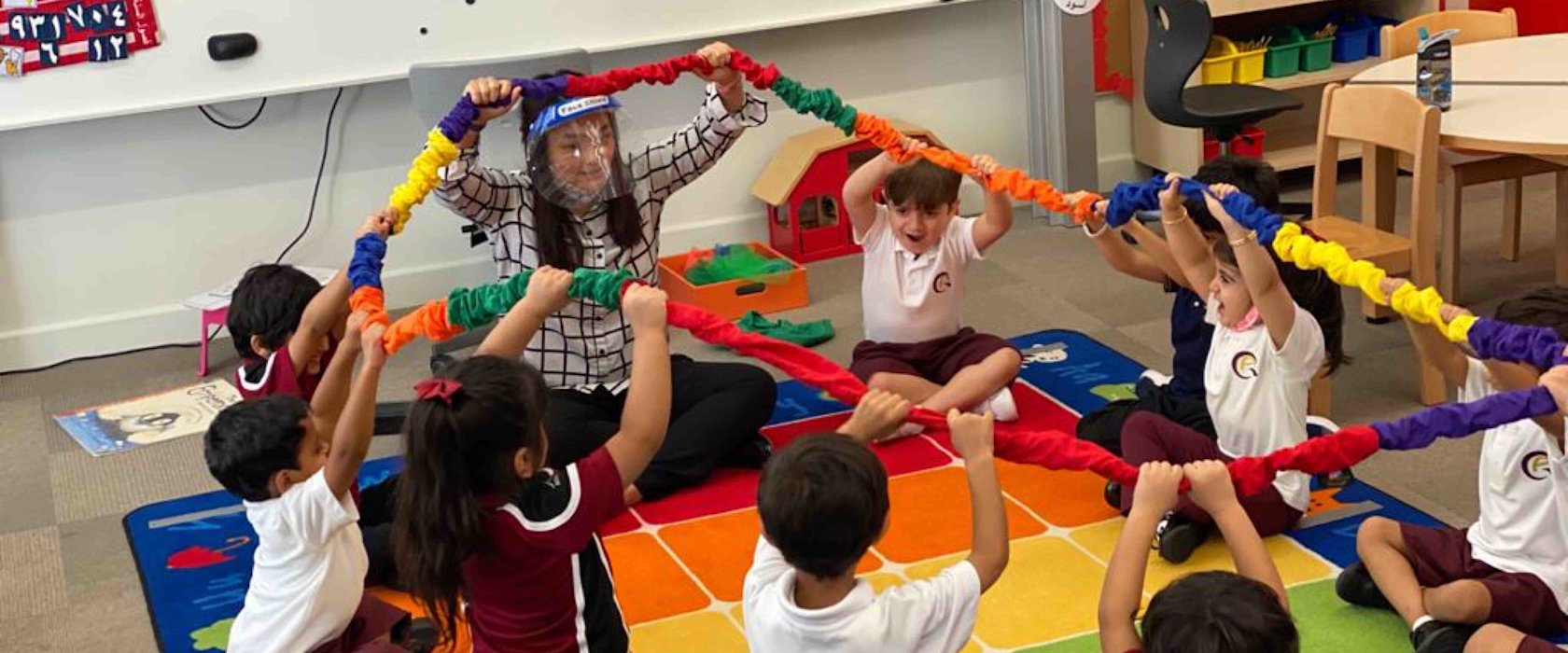
Innovative, communal, and fun approach to education at Qatar Academy Msheireb unlocks students’ creativity, teaches them life skills, and supports their mental health
A blend of art, music, and storytelling is being used by a Qatar Foundation school as an innovative way of inspiring children to learn – and ensuring that, particularly amid the COVID-19 pandemic, their mental and emotional wellbeing is looked after.
When the pandemic hit the world, educators were forced out of their comfort zones to innovate and rethink learning and teaching
Qatar Academy Msheireb (QAM) – one of the schools under Qatar Foundation’s (QF) Pre-University Education – has embraced arts-based learning as a way of giving children the chance to let their creativity and expression run free in the early years of their lives, teaching them vital life skills while also supporting them on their academic journey.
The learning experience at the school incorporates music and movement, storytelling and drama, and visual arts sessions designed to help children unlock their creative talents, develop their ability to solve problems, build their cognitive skills. and enjoy a sense of communal learning even when lessons have had to take place in online form during the pandemic.
“When the pandemic hit the world, educators were forced out of their comfort zones to innovate and rethink learning and teaching,” said A’qilah Saiere, an Early Years teacher at QAM.
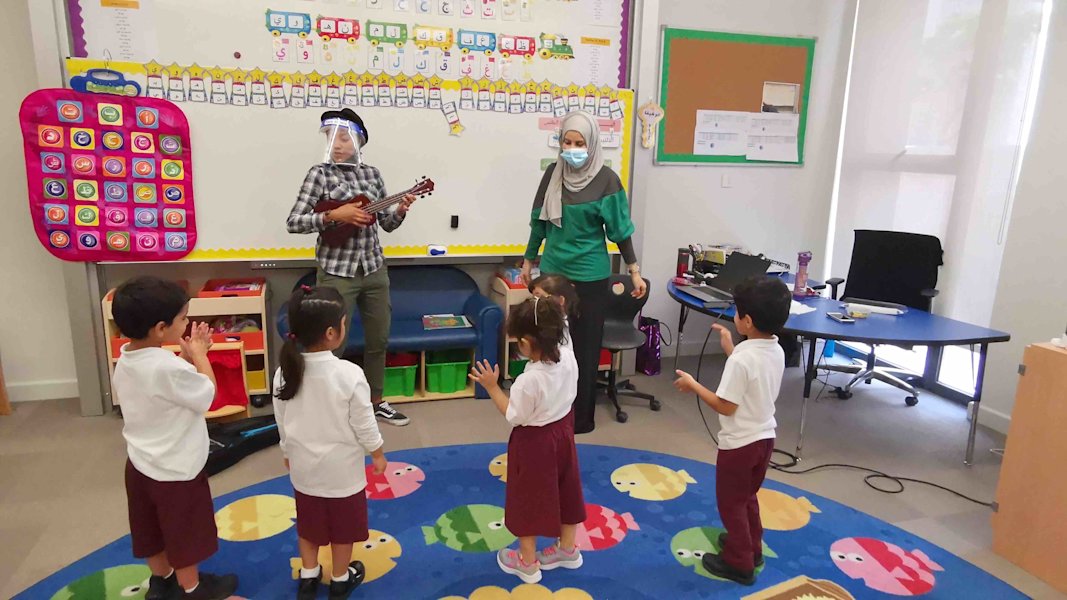
Arts-based learning is allowing children at Qatar Academy Msheireb to express their creativity.
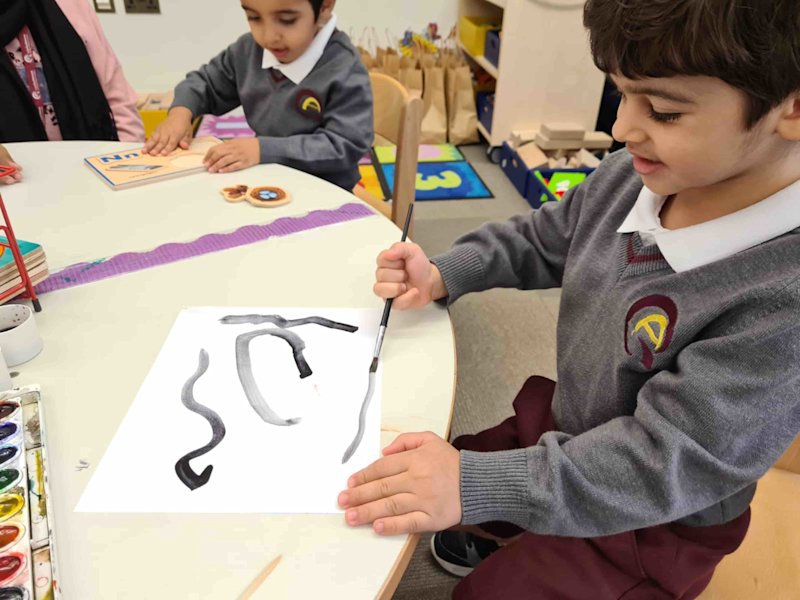
“Despite the trepidation of schools worldwide, students and teachers were forced into virtual learning within weeks. Educators were pushed to come up with unorthodox, interesting ways to engage students, while, at the same time, school leaders were challenged to put systems and resources in place to facilitate the transition to the ‘new normal’ which continues to present new and different challenges.
“Significantly, students and educators battle with restlessness, irritability, social anxiety and screen fatigue. Loss of learning and students lagging behind academically are subsequent consequences. This highlights the correlation between successful learning and emotional well-being.”
QAM is addressing this through a “whole child” approach to education, which Saiere describes as “nurturing student growth within a holistic environment”.
In the early years of learning, an essential component is the arts, as a means for children to create and express freely
“In the early years of learning, an essential component is the arts, as a means for children to create and express freely,” she said. “There is long-standing evidence of the effectiveness of this form of learning in enhancing children’s observational skills, communication skills, empathy and interpersonal skills.
“The arts provide an open canvas for students to create and explore without fear of making mistakes. This in turn, nurtures confident learners who are open-minded risk-takers.”
As Phanida Suwanarat, also an Early Years teacher at QAM, explains, this approach to learning at the QF school is characterized by “chatter, mess, and music”.
“Students start their day with music and movement,” she said. “Aside from being fun, the rhythmic patterns in music enhance math skills; lyrics build language; and dancing builds coordination.
Storytelling and drama are wonderful ways for children to develop an understanding of themselves and the world around them
“There is never a day without a story. Storytelling and drama are wonderful ways for children to develop an understanding of themselves and the world around them. Such shared, communal classroom activities help engage children’s interest, focus, imagination and develop their language skills in authentic, meaningful ways.
“Storytelling and drama provide children with multiple means of representation and expression, fostering appreciation, confidence, respect and collaboration. Stories additionally help students build empathy – the ability to walk in the shoes of others.”
When teaching through the visual arts, Suwanarat says, teachers provide students with “a multi-sensorial and kinesthetic experience to explore and discover”. This allows them to learn by doing – at their own pace and in their own way.
“It is the perfect integration of multiple intelligences,” she said. “Learning through visual arts fosters creative thinking and problem solving.
In the Early Years virtual classrooms at QAM, the arts are infused in simple ways
“It provides students with an alternative platform to represent their learning and thinking. The fluidity and openness in visual arts unleash limitless creativity.”
While incorporating the arts into online classrooms can be seen as a challenge, the QAM experience, according to its teachers, demonstrates how the process of making them part of the virtual education world can begin with small steps.
“In the Early Years virtual classrooms at QAM, the arts are infused in simple ways,” said Suwanarat.
“Favorites include dramatizing a familiar story with props and art jamming sessions, where children create a painting or drawing following the rhythm of the music played in the background. Musical instruments are substituted with everyday household items. enabling students and teachers to make music together despite being apart.”
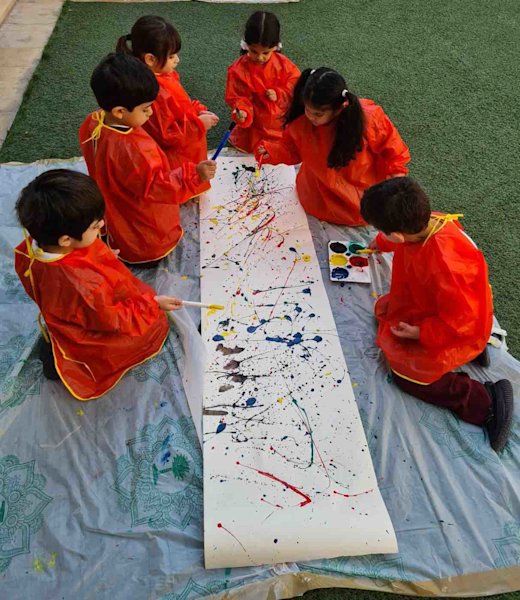
The learning experience includes music and movement, storytelling and drama, and visual arts sessions.
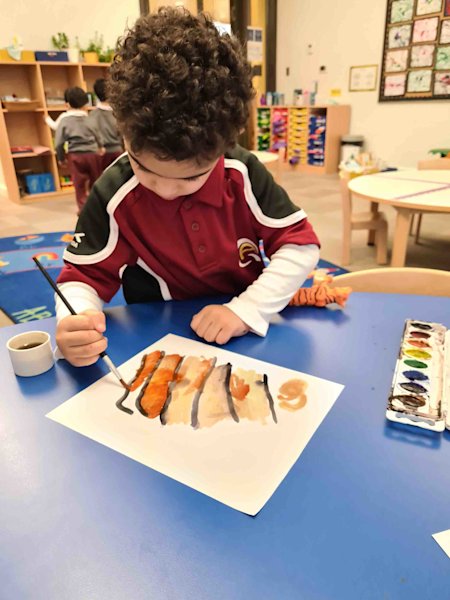
Immersing children in the arts has been identified as having a direct and positive impact on their brain function and mental health, through releasing neurochemicals such as dopamine and serotonin. “There is no better time than now, in the middle of a global pandemic, for educators to put students’ mental and emotional wellbeing at the center of everything,” said Saiere.
“One of the simplest ways to do this is to continuously provide students with opportunities and platforms to delve into the realms of creative expression and exploration. When children feel secure and happy, they thrive.”

